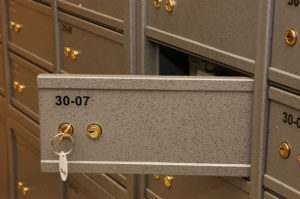What are the Duties of an Executor?
Many clients struggle with who can serve as an executor for their estate plan. They may not have an easy option amongst their family, and are hesitant to ask others to serve as executor. Many times clients want to know what are the duties of an executor so they can convey that to a potential candidate for the role. It isn’t easy to explain everything an executor needs to do as they have to react to the circumstances as the time, but there are some general steps they will address. A recent US News article entitled “How to Prepare to Be an Executor of an Estate” takes a further look into what is expected of an executor.
First, keep in mind that an executor is the person who helps wrap up the finances, assets and affairs for a deceased person. An executor is a person named in a will, and that is the scenario I’ll address. If you are using trusts, many of the steps will overlap.
As executor of an estate, you will need to get copies of the death certificate and the will, and take both to an attorney well versed in probate law. That attorney can help you probate the will through court.
Once appointed, you will follow the instructions in the will to administer the estate. As executor, you are acting in a fiduciary capacity, and your efforts are directed toward the interests of the beneficiaries of the decedent’s the estate.
You will identify the assets of the estate, determine their value, pay off any valid debts, close accounts like utilities and cable or phone plans and distribute money and possessions to beneficiaries. Depending on the terms of the will and the situation, you’ll have to file tax returns, make tax elections, and potentially sell property and the like. You may also establish trusts for beneficiaries, or make arrangements to deliver assets such as personal property, real property, vehicles and more.
The duties of an executor also include reporting what assets they found in the estate through the filing of an inventory, to notify creditors or other essential parties. Attorneys help with this process to ensure compliance with state laws.
The time required to be an executor can be extensive. Any court process is not a fast one, and for that reason many clients choose to avoid it through the use of trusts in their plans. Trusts do not require a court process and can be far more immediate for the family. As I said before, the duties of an executor overlap with the trustee, so the issues for consideration when picking a trustee are similar. You can see this article for more detail on the differences. https://galligan-law.com/the-difference-between-an-executor-a-trustee-and-other-fiduciaries/
Finally, executors may be compensated for their work. Some states have commission schedules listed in their statutes that the executor can collect, while other states require that you keep track of your time and the judge will authorize “reasonable” compensation for your actual efforts.
Ask for help if tasks seem overwhelming or you do not understand certain instructions on accounts or the will. An experienced estate planning attorney can assist.
Reference: US News (Dec. 22, 2021) “How to Prepare to Be an Executor of an Estate”

